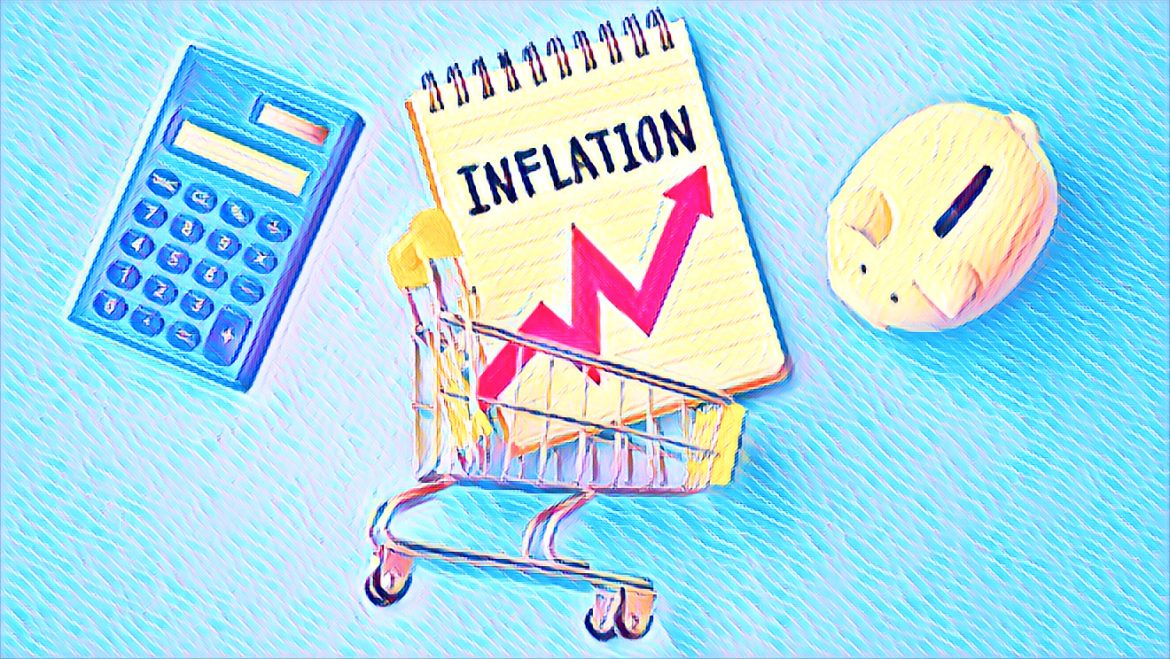Nigeria’s headline inflation for the year 2023 concluded slightly under the 30 percent threshold predicted by economists and research entities, including KPMG. The National Bureau of Statistics (NBS) reported a rate of 28.92 percent, a figure that, while lower than expected, does little to ease concerns over the future of price changes in the country.
Economists and professionals in related fields have warned of a potentially challenging year ahead if urgent measures are not taken to stabilize the foreign exchange (FX) market. The naira has experienced a consistent decline against other currencies, trading at about N1260/$ in the black market. The official market has seen the local currency surpass the N1000/$ mark, indicating possible further depreciation.
KPMG had earlier projected headline inflation to reach 30 percent, citing factors such as fuel subsidy removal and foreign exchange market unification, contributing to a 50 percent drop in the naira’s value at the official market.
The NBS’s consumer price index for December indicated an increase in the headline inflation rate year-on-year to 28.92 percent from 28.2 percent in November 2023. Food inflation was particularly notable, rising to 33.93 percent year-on-year, significantly higher than the 23.75 percent recorded in December 2022. This increase was attributed to rising prices of staples such as bread, cereals, oils, fats, and dairy products.
Consistent inflation spikes have been a major hurdle for Nigeria, with government efforts falling short of effectively curbing the trend. Past policies have been criticized for exacerbating rather than alleviating inflation. One such policy is the controversial Central Bank of Nigeria’s ways and means advances to the federal government, believed to increase liquidity.
Dr Muda Yusuf, CEO of the Centre for the Promotion of Private Enterprise, pointed to the energy crisis as the primary inflation driver. He noted the positive signs of increased domestic refining of petroleum products, which could help reduce energy costs and, consequently, inflation.
The CBN’s commitment to avoid the previous administration’s ways and means of financing, a significant driver of inflation, was also highlighted. Yusuf suggested that progress in debt securitization and public sales could moderate inflation. Additionally, addressing forex issues and improving security, particularly for farmers, are critical areas requiring attention.
Prof. Jonathan Aremu commented on the slow inflation growth in December 2023, attributing it to Nigerians’ limited cash access during that period, which reduced their purchasing power. He criticized any strategy that limits cash access to drive down inflation, labeling it destructive to the production sector.
Prof. Godwin Oyedokun of Lead City University, Ibadan, expressed concern over Nigeria’s status as a consumption-driven nation with insufficient production to meet its needs. He urged the government to focus on encouraging production to combat inflation.
According to a report by The Guardian, the National President of the All Farmers Association of Nigeria, Kabir Ibrahim, blamed high food inflation on the government’s failure to adhere to its own rules, particularly in the context of rice purchases for distribution to constituents by legislators, which he argued exacerbates food inflation.
Frontline economist Dr Ayo Teriba emphasized that Nigeria’s persistent inflation is likely to continue unless issues related to exchange rate volatility are addressed. He stressed the importance of stabilizing the naira to decelerate inflation and improve living standards.
Echoing similar concerns, Johnson Chukwu, CEO of Cowry Asset Management, identified the high cost of food and rising insecurity as the two major factors fueling inflation in Nigeria. He noted that security challenges have led to a significant increase in food prices and a reduction in food production. Even core inflation, which is typically expected to moderate, is worsening, further diminishing the purchasing power of the average Nigerian.
Chukwu warned that the depreciation of the local currency and ongoing security issues during the planting season are likely to hinder any expected increase in food production in Nigeria, thereby continuing the cycle of rising inflation.
In conclusion, these insights from various experts paint a complex picture of Nigeria’s economic challenges. While the slightly lower-than-expected inflation rate at the end of 2023 provides some relief, the underlying issues of forex instability, security concerns, and policy effectiveness remain critical areas that require immediate and focused attention from the government and economic policymakers.


